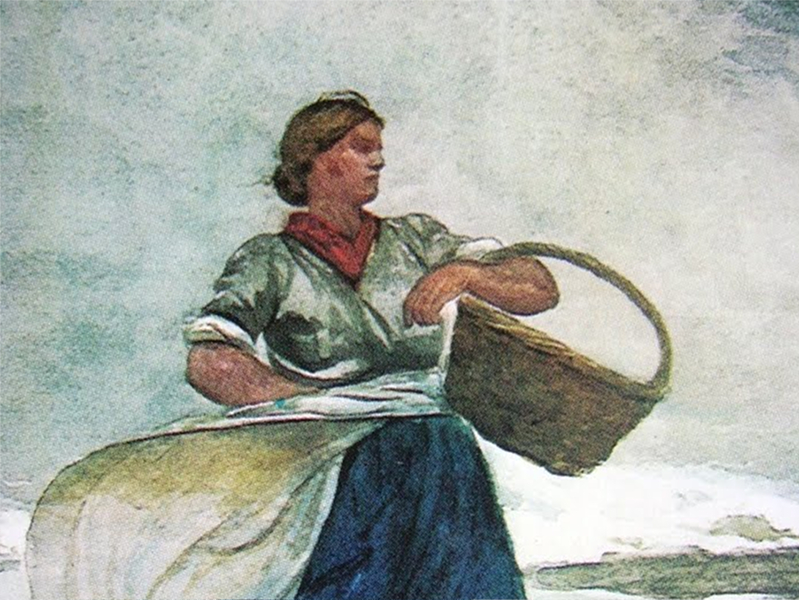|
Marretje Arents
Marretje Arents (c. 1712–28 June 1748 Amsterdam), known as ''Mat van den Nieuwendijk'', and ''het limoenwijf'' (i.e. the limewoman), was a Dutch fishwife and rebellion leader, sentenced to death as one of the three instigators and leaders responsible for the so-called Pachter riots of 1748. The Pachter riots were caused by tax conflicts and began in Amsterdam on 17 June 1748. The discontent escalated on 24 June; during two days 19 (or 36) houses of landlords were plundered. Arents was quoted saying that they had plans to conquer the Stadhuis op de Dam (city hall) and proclaim a revolution In political science, a revolution (Latin: ''revolutio'', "a turn around") is a fundamental and relatively sudden change in political power and political organization which occurs when the population revolts against the government, typically due .... [...More Info...] [...Related Items...] OR: [Wikipedia] [Google] [Baidu] |
Fishwife
A fishwife, fish-fag or fishlass is a woman who sells fish. Some wives and daughters of fishermen were notoriously loud and foul-mouthed, as noted in the expression, ''To swear like a fishwife'' as they sold fish in the marketplace. One reason for their outspokenness is that their wares were highly perishable and so lost value if not sold quickly. Also, having to manage alone while their menfolk were away fishing for extended periods, they needed to become strong and self-sufficient. Fishwives in fishing villages such as Cullercoats and Newhaven were noted for their beauty, hardiness and industry and were celebrated by artists and royalty. In this context, the word ''wife'' means ''woman'' rather than ''married woman'', from the Old English ''wif'' (woman). Billingsgate London's traditional fish market was frequented by such types who were known as "''the wives of Billingsgate''". "''They dressed in strong 'stuff' gowns and quilted petticoats; their hair, caps and bonne ... [...More Info...] [...Related Items...] OR: [Wikipedia] [Google] [Baidu] |
1748 Deaths
Events January–March * January 12 – Ahmad Shah Durrani captures Lahore. * January 27 – A fire at the prison and barracks at Kinsale, in Ireland, kills 54 of the prisoners of war housed there. An estimated 500 prisoners are safely conducted to another prison."Fires, Great", in ''The Insurance Cyclopeadia: Being an Historical Treasury of Events and Circumstances Connected with the Origin and Progress of Insurance'', Cornelius Walford, ed. (C. and E. Layton, 1876) p51 * February 7 – The San Gabriel mission project begins with the founding of the first Roman Catholic missions further northward in the Viceroyalty of New Spain, in what is now central Texas. On orders of the Viceroy, Juan Francisco de Güemes, Friar Mariano Marti establish the San Francisco Xavier mission at a location on the San Gabriel River in what is now Milam County. The mission, located northeast of the future site of Austin, Texas, is attacked by 60 Apache Indians on May ... [...More Info...] [...Related Items...] OR: [Wikipedia] [Google] [Baidu] |
18th-century Dutch Criminals
The 18th century lasted from January 1, 1701 ( MDCCI) to December 31, 1800 ( MDCCC). During the 18th century, elements of Enlightenment thinking culminated in the American, French, and Haitian Revolutions. During the century, slave trading and human trafficking expanded across the shores of the Atlantic, while declining in Russia, China, and Korea. Revolutions began to challenge the legitimacy of monarchical and aristocratic power structures, including the structures and beliefs that supported slavery. The Industrial Revolution began during mid-century, leading to radical changes in human society and the environment. Western historians have occasionally defined the 18th century otherwise for the purposes of their work. For example, the "short" 18th century may be defined as 1715–1789, denoting the period of time between the death of Louis XIV of France and the start of the French Revolution, with an emphasis on directly interconnected events. To historians who expand ... [...More Info...] [...Related Items...] OR: [Wikipedia] [Google] [Baidu] |
Criminals From Amsterdam
In ordinary language, a crime is an unlawful act punishable by a state or other authority. The term ''crime'' does not, in modern criminal law, have any simple and universally accepted definition,Farmer, Lindsay: "Crime, definitions of", in Cane and Conoghan (editors), ''The New Oxford Companion to Law'', Oxford University Press, 2008 (), p. 263Google Books). though statutory definitions have been provided for certain purposes. The most popular view is that crime is a category created by law; in other words, something is a crime if declared as such by the relevant and applicable law. One proposed definition is that a crime or offence (or criminal offence) is an act harmful not only to some individual but also to a community, society, or the state ("a public wrong"). Such acts are forbidden and punishable by law. The notion that acts such as murder, rape, and theft are to be prohibited exists worldwide. What precisely is a criminal offence is defined by the criminal law of eac ... [...More Info...] [...Related Items...] OR: [Wikipedia] [Google] [Baidu] |


